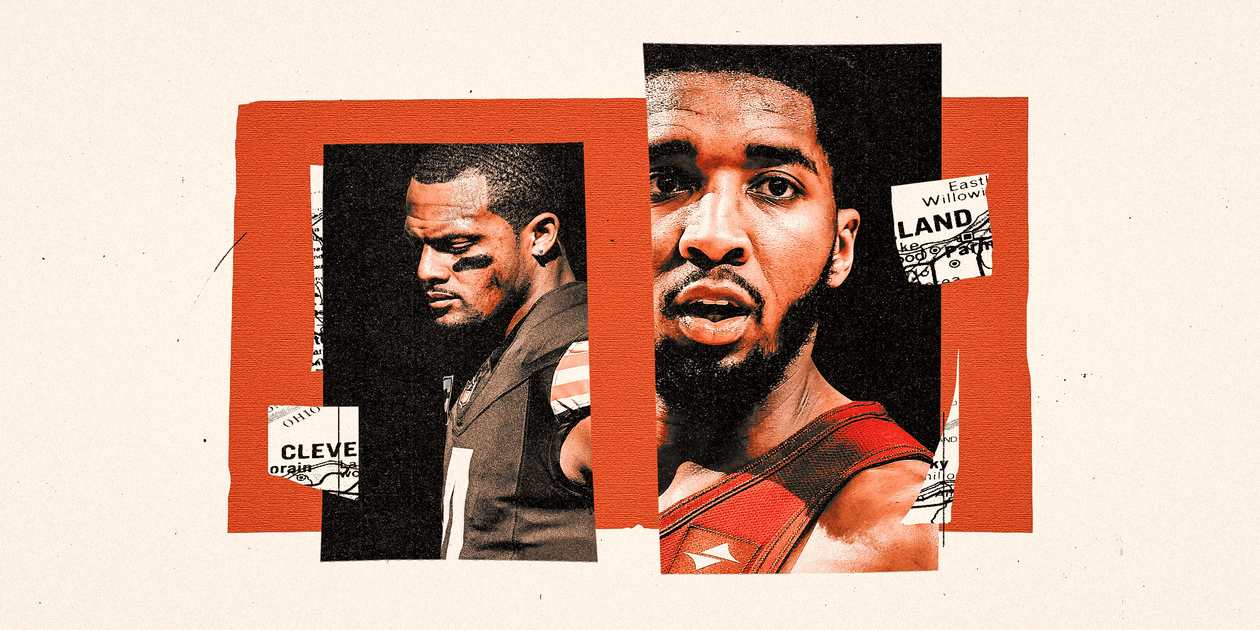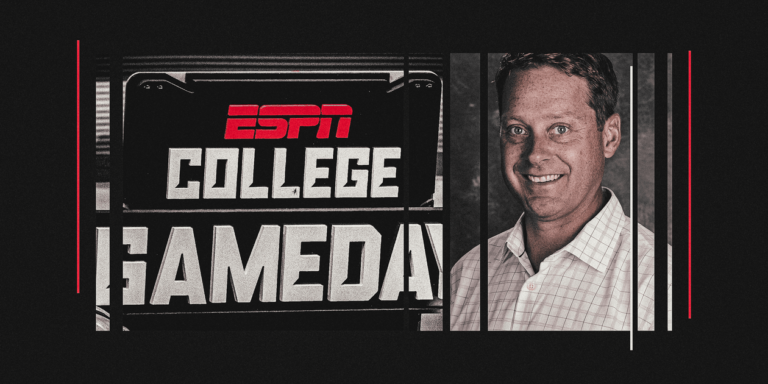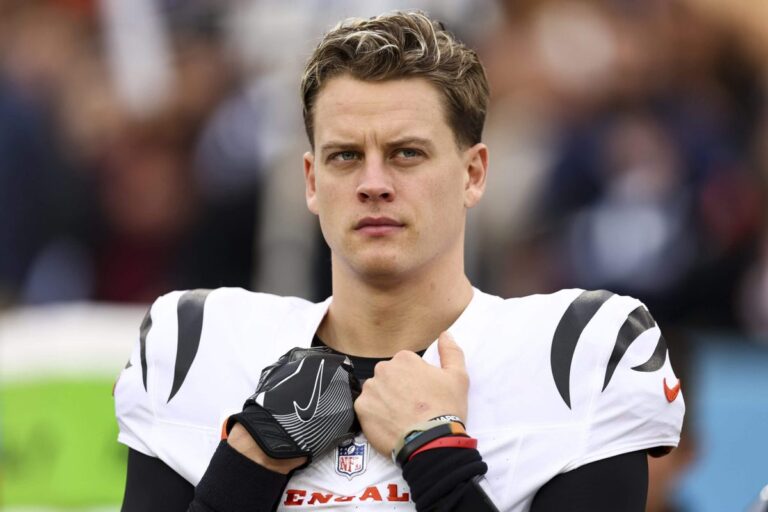Here is the plain text result:
They arrived within six months of each other, two stars summoned to Cleveland as franchise saviors and the final pieces necessary for a championship run.
The Cavaliers packed their arena with employees and team personnel in September 2022 to welcome Donovan Mitchell at his introductory news conference. It was a signal both internally and across the NBA that the Cavs were contenders again. But six months earlier, when Deshaun Watson took the podium in March for an introductory news conference, it felt more like an interrogation than a Browns coronation.
Two years later, the Cavaliers and Browns are in far different spaces.
Mitchell is the fuel that has propelled the Cavs to the best record in the NBA. Watson is the fuel for the biggest grease fire in the history of the sport.
Two franchises, two high-stakes gambles. Two drastically different results. The parallels and outcomes between these teams that play their home games just a mile apart provide a fascinating case study in the risk, reward and repercussions of what happens when teams get franchise-altering trades right and when they go horribly wrong.
Both Mitchell and Watson were stars in the prime of their careers upon arriving. Now that Mitchell has committed to the Cavs for the foreseeable future with a contract extension and the Browns will be picking the shrapnel of Watson’s contract out of their skin for years to come, it’s worth looking back and asking: How did the Cavs get it right and the Browns get it so very wrong?
Franchise quarterbacks never, ever become available through trades in the prime of their careers. The price of obtaining one is worth whatever the cost.
Would a quarterback-starved team desperate to win trade its next five first-round picks for Josh Allen or Patrick Mahomes? How about six?
There is no price too high.
Had Mayfield not been up against a contract extension, maybe all of it ends differently for the Browns. An injury to his non-throwing shoulder only compounded his terrible 2021 season, but Mayfield struggled at times when he was healthy, too.
Would the Browns be better off with Mayfield today over Watson? Of course, and that’s without including the three first-round picks they would have retained. But Mayfield needed to be humbled and needed to grow up. There’s no way of assuring that would’ve happened here. It occurred only because of his lousy play in Carolina and the fact he bounced around to four teams over two years.
He has settled in nicely in Tampa and made a home for himself — on a $100 million contract that is still less than half of what the Browns would’ve had to commit to him at the time.
See the difference?
In fact, one of the first things he did was reach out to young stars such as Darius Garland to say he wasn’t arriving with the intention of taking over the locker room. Garland was coming off his first All-Star appearance. This was still his team, Mitchell told him. He was here to fit in and help where he could.
It didn’t take long, of course, for Mitchell to emerge as the floor leader. But he didn’t move in on the first day and start rearranging the furniture and repainting the walls. It was an organic integration. He was a model teammate on the court and said publicly exactly what the Cavs needed from him as a leader of a young roster still trying to figure out how to win.
Had Mitchell refused to sign the extension, the Cavs would have been forced to trade him last summer. They could have recouped some value, but not nearly as much as what they paid to get him. The picks they owe Utah would just be starting to transfer and Mitchell wouldn’t even be here. The whole thing could’ve ended badly. Instead, as the Jazz continue to sputter around the bottom of the standings, the Cavs are the clear winners of the trade today.
The Browns, meanwhile, insisted they did the background work on Watson before trading for him and were comfortable with what they found. Less than three months after the deal, The New York Times reported that Watson met with at least 66 women for massages over 17 months.
The Browns had already signed him to a $230 million, fully guaranteed contract by that point and were beholden to him. They could never get in front of the scandals even before his play on the field began deteriorating.
The New York Times report was followed by an HBO special. Watson settled most of the cases against him while continuing to insist he did nothing wrong. Arbitrator Sue L. Robinson, a retired federal judge, ruled the NFL carried its burden to prove Watson, by a preponderance of the evidence, engaged in sexual assault as defined by the NFL. She even made note of Watson’s lack of remorse. It was a slow drip of information that never seemed to stop.
Even this year, another woman emerged claiming Watson forced her to have sex with him. That case also was settled out of court.
Nevertheless, the Browns continued to bend to Watson’s will. He grumbled about scripted plays. He made clear he wasn’t comfortable playing under center and preferred shotgun. And when Joe Flacco thrived in the same Kevin Stefanski system that Watson at times struggled to grasp, the Browns fired offensive coordinator Alex Van Pelt and broke an offense that didn’t need fixing. They overhauled the offensive staff and rebuilt their scheme to fit a quarterback who could no longer play at an elite level.
The Browns will pay for their mistake for at least the next few years. While Watson has two years left on his contract, the Browns still must account for more than $170 million on their cap sheet. As of now, those numbers are stretched over the next three years. If they continue to restructure his deal and spread out the money, the Watson stain could linger even longer. Regardless of their exit strategy, it will include a fair amount of pain.
Watson will likely be on the 53-man roster next year, but he won’t be on the field. One way or another, the Browns will yet again have a new starting quarterback.
Cleveland was the first team Watson eliminated. Of the four finalists willing to overlook his scandals and bring him in anyway, Watson was least interested in the Browns. But team executives never stopped pursuing him.
They ultimately got their wish. It has turned into a nightmare.
Source link




